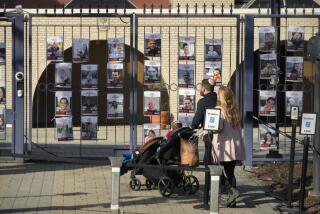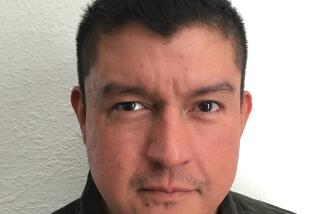U-2 pilot Francis Gary Powers, downed by USSR, to get Silver Star
WASHINGTON — Fifty-two years after his U-2 spy plane was shot down over the Soviet Union, famed Cold War pilot Francis Gary Powers will be posthumously awarded the Silver Star.
The medal will be presented by Air Force Chief of Staff Gen. Norton Schwartz to Powers’ grandson and granddaughter at a Pentagon ceremony attended by other family members next Friday.
Powers, who died in 1977 at age 47 in a helicopter crash in Los Angeles, will be recognized for his “indomitable spirit, exceptional loyalty’’ and “sustained courage in an exceptionally hostile environment,’’ according to the citation.
“We’re honored,’’ his son, Gary Powers Jr., said from his Virginia home, noting the medal is being awarded on this year’s 50th anniversary of his father’s release by the Soviets. “It’s just a wonderful thing to have happen for my father.’’
Powers’ plane was shot down on May 1, 1960, about 1,300 miles inside Soviet territory. The pilot bailed out and was captured, heightening Cold War tensions. Powers was convicted of espionage and sentenced to 10 years in prison but was freed after serving nearly two years, in a dramatic trade for Soviet spy Rudolf Abel on Berlin’s Glienicke Bridge.
Powers later was a test pilot, then an airborne traffic reporter for Los Angeles radio and television. He died when his television station helicopter ran out of fuel and crashed in a field in Encino. He is buried at Arlington National Cemetery.
His son, 47, founder of the Cold War Museum in Vint Hill, Va., last year petitioned the Air Force Board of Correction of Military Records to award his father a Silver Star. He’d read about the awarding of Silver Stars in 2004 to two Air Force officers whose reconnaissance plane was shot down by a Soviet fighter over the Barents Sea two months after Powers’ plane was shot down.
“For almost 107 days, Captain Powers was interrogated, harassed, and endured unmentionable hardships on a continuous basis by numerous top Soviet Secret Police interrogating teams,’’ the citation says. “Although greatly weakened physically by the lack of food, denial of sleep and the mental rigors of constant interrogation, Capt. Powers steadfastly refused all attempts to give sensitive defense information or be exploited for propaganda purposes, resisting all Soviet efforts through cajolery, trickery, and threats of death to obtain the confessions they sought as part of the pretrial investigation.”
“As a result of his indomitable spirit, exceptional loyalty, and continuous heroic actions, Russian intelligence gained no vital information from him.”
In 2000, Powers was posthumously awarded the Distinguished Flying Cross, a Department of Defense Prisoner of War Medal and a National Defense Service Medal two years after government records were declassified showing that Powers was part of a joint Air Force-CIA program.
“It’s a great honor for us in the Air Force to be able to openly and proudly honor Powers’ service as one of our own,’’ said Dick Anderegg, director of Air Force History and Museums.
Powers, when asked how high he was flying on May 1, 1960, would often respond, “Not high enough,’’ according to his son.
ALSO:
‘Car Talk’s’ last lap: Click and Clack to retire; fans mourn
Military suicides spike -- nearly 1 per day, Pentagon reportsHells Angels raids yield 20 arrests, 2 machine guns, many drugs
richard.simon@latimes.com
More to Read
Start your day right
Sign up for Essential California for news, features and recommendations from the L.A. Times and beyond in your inbox six days a week.
You may occasionally receive promotional content from the Los Angeles Times.







